The following recap contains spoilers for the three-episode premiere of Hello Tomorrow! on Apple TV+
Usually, we fall in love with a TV show not because of its plot but due to what we might call its vibe: some mix of mood, setting, and characters that makes us want to inhabit the fictional world of the series. What happens is largely secondary.
And on this front, Hello Tomorrow! had me fairly immediately. Billed as retro-futuristic, the world we’re thrown into is one where the future looks much like people imagined it would in the 1950s, while at the same time feeling very much like we’re still in the 1950s, or the version of them presented on TV, with a couple of twists.
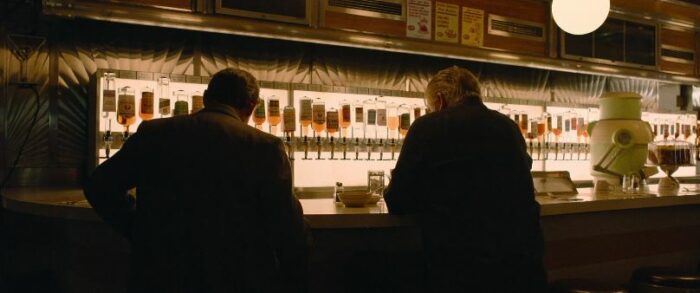
In the broad strokes, it’s a utopic vision where there rather pointedly seems to be no racism, people drive hovercars and have robot assistants… we even see a fellow with a jetpack early on in Episode 1. And this gets me to thinking about the unvarnished optimism about the future that something like the hovercar, or the jetpack, represents.
In practical terms such things would be virtually useless, or without meaningful benefit. There may be technological impediments, in other words, keeping us from having flying cars, but realistically I am not sure we even want them. Do you want traffic jams IN THE SKY? No thanks.

Yet, this was never the point, so much as symbolizing a future where we had hovercars because they’re nifty and there was no reason not to do it. Hello Tomorrow! is hitting on that sentiment out of the gate.
The music, provided by Mark Mothersbaugh, perfectly sets the stage for the action, which is no surprise given his history with Devo. Retro-futuristic, indeed.
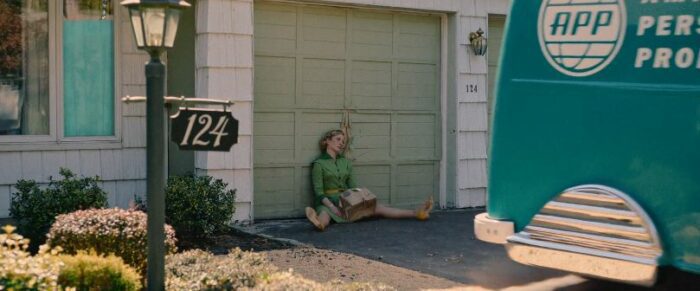
But there is also a darkness in Hello Tomorrow!, from which it rather immediately derives both humor and drama. Marie (Annie McNamara) gets run down by an autonomous hovervan (complete with animated bird driver). Ed (Hank Azaria) has a gambling problem. And of course Jack (Billy Crudup) is lying to literally everyone.
What’s noteworthy, though, is that none of this undermines the optimistic spirit at the center of the show, even if maybe it should. As Episode 1 comes to a close, we learn that Buck Manzell (Frankie Faison) isn’t really on the Moon (though he may have dementia), Stan Jenkins is a turtle, and basically the whole Brightside company Jack claims to work for is a Ponzi scheme he’s running himself.
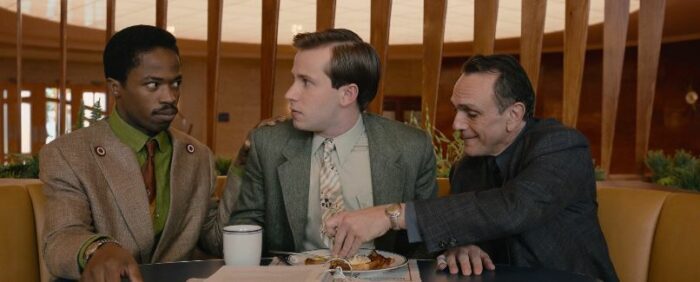
And yet, I have to believe that Jack genuinely thinks there is value in what he’s doing. Just look at how he reunited Sal (Michael Harney) with his daughter! They’re a happy family again! And the big lie of selling plots on the Moon is paralleled in the comparatively smaller deception Jack enacts with Joey (Nicholas Podany)—he could and should tell him that he’s his father, sure, but he’s probably giving the kid more joy by pretending otherwise.
The extent to which this isn’t just a delusion Jack calms himself with is the distinctive thing about Hello Tomorrow! and where it promises to explore some interesting territory through its story. By the end of Episode 3, the enterprise is threatened from multiple angles. Shirley (Haneefah Wood) is trying to expand in ways that would be good for a legitimate business but are far too risky for a Ponzi scheme. Her radio ad has gotten them on the radar of consumer protection bureaucrats, which might not be so bad if they were leaving town as planned, but they aren’t going to because of Jack’s connection to Marie.
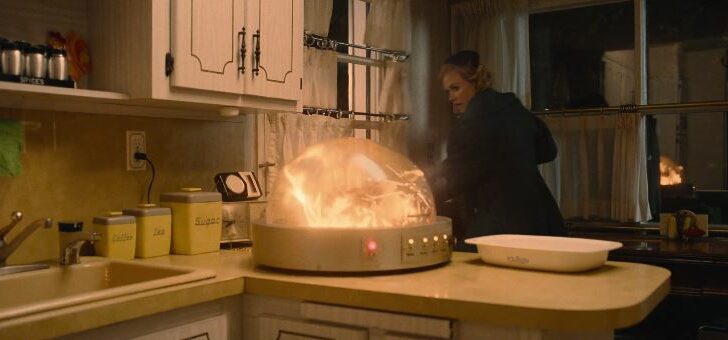
Meanwhile, Herb (Dewshane Williams) has convinced Myrtle (Alison Pill) to burn her life in pursuit of the Moon and she’s not going to quietly accept delays or the offer of a refund. As Episode 3 comes to a close, she’s offered a consumer complaint form that is going to bring a fury to what would otherwise be a technical infraction.
We can fully expect that at some point Jack’s charade is going to be up, but the intriguing thing is that I can’t predict what will happen then. The man is charming, and I think actually authentic in his desire to improve people’s lives. He thinks tricking them into happiness is worth it, and might even wager that they’d agree at the end of the day.
Will they? Will he be able to pull some kind of “aw, shucks” act that leaves Myrtle feeling the villain?
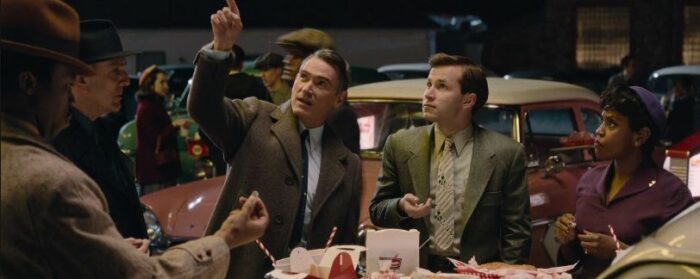
But more importantly—is Jack wrong? Maybe the best dream is the one you’ll never achieve, that always imbues today with the soft glow of a promised tomorrow.

